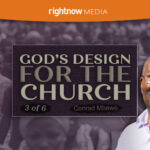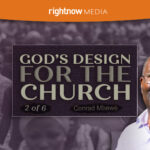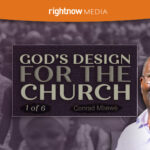This is my fourth article in a series tackling questions around how the church should raise money. So far we’ve seen a couple of the biggest challenges to raising money, while in the second and third articles I considered tithing and charging for services, respectively. In this article I want to look at the third legitimate way that churches can raise money: freewill offerings or pledges.
One Of The First Freewill Offerings Taken
Paul taught about freewill offerings when he wrote, “Now concerning the collection for the saints: as I directed the churches of Galatia, so you also are to do. On the first day of every week, each of you is to put something aside and store it up, as he may prosper, so that there will be no collecting when I come” (1 Corinthians 16:1–2; see also 2 Corinthians 8:1–9:15).
Freewill offerings are often related to a very specific project in the life of the church.
Such a freewill offering is over and above tithing. It is often related to a very specific project in the life of the church. You will notice in the passage above that this was not a normal collection. It was “the collection for the saints.” There was a famine in Judea, so Paul encouraged the churches in Galatia, Macedonia, and Achaia to take up a special collection, which he would later pass through to collect and deliver to those Christians affected by that famine.
Gladly Going Beyond The Tithe
Whereas tithing relies on our faithfulness, freewill offerings rely on our generosity. Although Paul really urged the Corinthians to stretch themselves in giving toward this cause, he quickly added, “Each one must give as he has decided in his heart, not reluctantly or under compulsion, for God loves a cheerful giver” (2 Corinthians 9:7).
Whereas tithing relies on our faithfulness, freewill offerings rely on our generosity.
As stated earlier, freewill offerings and pledges are often related to specific needs and projects. It may be a building project or the support of a missionary. It may be for the purpose of holding a camp for the young people in the church or to help widows in their distress. Perhaps it may be to purchase a generator for a church building or a car for the pastor. The needs are varied. A need is presented before the church, church members are given time to pray about how much they can give, and at the right time the collection is taken.
The Heart Matters—Not The Amount
Often, Christians end up giving in proportion to their income. Those with “deep pockets” will often give more than those who are eking out a living. No one should despise the small amount that the widow gives out of her poverty (Luke 21:1-4). What counts is the heart. However, there are times when those who are considered to be poor give surprisingly large sums as freewill offerings simply because their hearts have been unusually touched by the cause at hand.
This is what Paul testified of concerning the Macedonian believers when they heard about the famine in Judea. He writes, “We want you to know, brothers, about the grace of God that has been given among the churches of Macedonia, for in a severe test of affliction, their abundance of joy and their extreme poverty have overflowed in a wealth of generosity on their part. For they gave according to their means, as I can testify, and beyond their means, of their own accord, begging us earnestly for the favor of taking part in the relief of the saints—and this, not as we expected, but they gave themselves first to the Lord and then by the will of God to us” (2 Corinthians 8:1–5).
No one should despise a small amount given out of poverty. What counts is the heart.
When God touches the hearts of his people, this is what will happen again and again. It is amazing!
Adapted from God’s Design for the Church: A Guide for African Pastors and Ministry Leaders by Conrad Mbewe, Copyright © 2020, pp. 143-144. Used by permission of Crossway, a publishing ministry of Good News Publishers, Wheaton, IL 60187. Copies can be purchased at the Book Depository.














